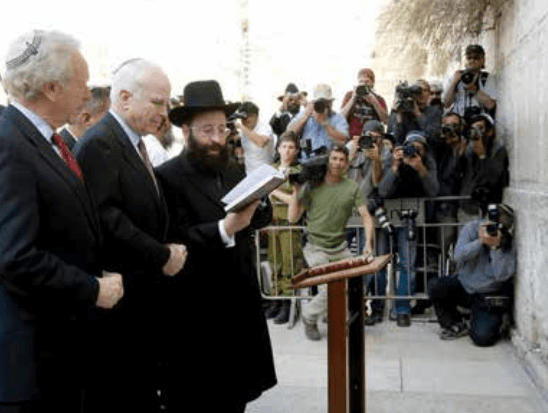The original article is published at JPost.com
“Our key turning point was when Nate was a high-school junior, and I was a sophomore when we did experience some antisemitism.”
Two English brothers on the Brown University heavyweight crew team are making it fashionable to stand up for Israel on campus at a time when such support is not always in vogue.
Nathan (23) and Asher (22) Swidler, passionate Zionists and advocates for Israel, knew they needed to do something in the wake of the October 7 terrorist attacks and what they describe as the “worryingly hostile climate for Jews and Zionists” across college campuses.
The handsome, charismatic brothers, born 14 months apart and both seniors at the prestigious Ivy League school known both for its academics and its nationally ranked rowing team, had an idea that would make Israel “in fashion” around the Providence, Rhode Island campus. They designed a blue-and-white unisuit, a tight-fitting rowing and all-purpose exercise outfit, with the Star of David on the front and “Am Yisrael Chai” on the back – and made it easy for fellow rowers, classmates, and Israel supporters everywhere to sport the outfit.
Asher and Nathan – or Ash and Nate – each spent a post high school gap year in Israel on the Aardvark Israel program and drew inspiration for the unisuit from events they experienced living on both sides of the pond, including November’s March for Israel and a high school encounter with antisemitism.
“We were invigorated by the crowds of supporters marching in Washington, DC, but troubled that as varsity athletes, we could not attend. We felt desperate to champion the cause in a way we knew how to spread positivity both on and off the water.”
Brown University’s John Carter Brown library (credit: CHENSIYUAN/WIKIMEDIA COMMONS)
Both boys attended the 1,300-student Eton College boarding school in England. Asher quickly points out an earlier inspiration for their willingness to stand up for Israel and Jewish causes.
“Our key turning point was when Nate was a high-school junior, and I was a sophomore when we did experience some antisemitism.”
He recounts an incident when a student hung a Nazi flag in his room. When Ash confronted him, the boy said, “It was just a joke,” and accused Ash of “taking himself too seriously.” The boys brought it to the attention of the administration, which, after an investigation, decided not to put it on the boy’s record.
“This is what happens when we don’t stand up and show up,” Ash adds.
The boys continued “showing up” throughout their years at Eton.
Nate notes that he was one of 20 students selected to serve as a school ambassador. Ambassadors were expected to wear waistcoats (vests) with a pattern or insignia of their choosing.
“Some wore waistcoats with their favorite football team or animal. I wanted to wear one with the Israel flag,” said Nate, who proudly added that Ash followed suit when he was elected ambassador the following year.
“It showcased our willingness to stand out,” though Nate lamented that there was some “student pushback.”
“The Sri Lankan and English flags were okay, so we pushed to wear the flag of our nation-state.”
While Nate rowed at Eton and his team won the prestigious Princess Elizabeth Challenge Cup (the prestigious international high school rowing competition at Henley Royal Regatta), Ash was a latecomer to the sport. He joined the Brown team as a walk-on junior, a particularly impressive accomplishment as most rowers at Brown are recruited to join the team.
“I saw the joy and discipline that Nate endured from rowing at Brown. I love the fact that it is a humbling sport. The team is always so much more than the individual, and for Brown in particular, we are striving for a goal that is so much bigger than self-importance—a national championship.”
Nate’s memorable rowing moments include winning the Henley Royal Regatta in 2019, beating Harvard last year in the dual race, and rowing in the pair competition with his brother. He credits his father and an Eton housemaster for encouraging him to try rowing at age 15.
“The friends I’ve made and the bonds I’ve forged through the torturous pain, both the physical in the midst of training and the emotional in the wake of a loss, are some of the closest relationships I will treasure for the rest of my life.”
He also credits the sport for teaching discipline and loyalty.
At Brown, the Swidler brothers continue to team up both in the water and in their support of Israel and Jewish causes during what has become a difficult time for college students across the country to show support for Israel openly.
They teamed up to design, market, and distribute the uni and “got so much more support than we reckoned.” They assumed that the project would receive mixed support from the rowing team, so they polled each member of the team individually to see if they would consider wearing the uni.
“Thirty of the 50 team members said they wanted one – it warmed our hearts!”
A donor’s generosity allowed the whole team to don the pro-Israel swag
A donor enabled the Swidlers to give a uni to each member who wanted one. They are also available for purchase online [www.uniforisrael.com]; the website notes that they are for those who want to “show pride for Israel outside of the traditional ecosystem on college campuses” and for those who want to “stand in solidarity with fellow Jewish athletes in a sport that doesn’t typically offer ways to display it.” Ten dollars of each purchase is donated to Leket, the leading food rescue organization in Israel.
The Swidlers’ support for Jewish causes and Israel on campus includes Ash’s participation in NextGen and Start-Up Nation Mentorship, two projects of the World Jewish Congress. Both boys are also very active in Brown Chabad and have a close relationship with its directors, Rabbi Mendel and Chana Laufer, directors of Brown Chabad. They regularly eat Shabbat meals at Chabad and have proudly watched the number of weekly attendees grow during their time at Brown. Ash currently serves as the president of Chabad.
Rabbi Laufer praised both boys.
“They are amazing, very proud, committed and unapologetic Jews in our community. Ash takes being president very seriously. He is a great, active and compassionate leader.”
Nate and Ash note that Chabad has been a particularly important and safe place on campus for Jewish students in the aftermath of October 7. Fellow Chabad board member and president of Brown Students for Israel, Brooke Verschleiser, penned a March 10 editorial in the Brown Daily Herald entitled, “A Note to the Silent Majority” where she began, “The violent threats against the leaders of Brown-RISD Hillel have left the Jewish community sad, angry and disgusted. But even more troubling than the threats may be the absence of outrage from the campus community.”Verschleiser is proud of the Swidlers and their active pro-Israel stance.
“Seeing Ash and Nate stand up for Israel in the midst of adversity on campus is truly inspiring. It requires courage to boldly voice support for Israel in an environment where opinions may be unfavorable or misinformed. Their fortitude in defending Israel and proudly embracing their Zionism sets a powerful example for other students to advocate for the truth and stand up for what they believe in.”
Josh Swidler is also pleased with his boys.
“My wife and I always taught our children to be proud of being Jewish, but ultimately it is up to each individual as to whether or not they want to lead. I am incredibly proud of my boys for their efforts both on the water and in the community at large, showing how proudly displaying your Jewish identity can be an example for others and that we are not afraid, even in these dark and challenging times.”
For now, the Swidlers must continue to focus on their studies and their rowing. Both boys expect to graduate from Brown this May. Nate, an economics and political science major, hopes to work after graduation in political speech writing, and Ash, an international and public affairs major, will be looking for work in public relations.
The Brown crew team will be participating in the upcoming IRA Sarasota Invitational, competitions against Northeastern, Dartmouth and Princeton, the Eastern Sprints, and hopefully the IRA Championships.
There are still many opportunities to sport their unis and show their unwavering support for Israel in the water and around campus.





